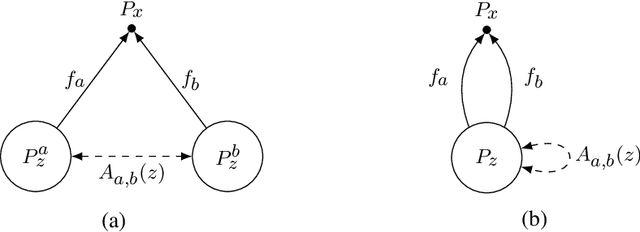Indeterminacy in Latent Variable Models: Characterization and Strong Identifiability
Paper and Code
Jun 02, 2022
Most modern latent variable and probabilistic generative models, such as the variational autoencoder (VAE), have certain indeterminacies that are unresolvable even with an infinite amount of data. Recent applications of such models have indicated the need for \textit{strongly} identifiable models, in which an observation corresponds to a unique latent code. Progress has been made towards reducing model indeterminacies while maintaining flexibility, most notably by the iVAE (arXiv:1907.04809 [stat.ML]), which excludes many -- but not all -- indeterminacies. We construct a full theoretical framework for analyzing the indeterminacies of latent variable models, and characterize them precisely in terms of properties of the generator functions and the latent variable prior distributions. To illustrate, we apply the framework to better understand the structure of recent identifiability results. We then investigate how we might specify strongly identifiable latent variable models, and construct two such classes of models. One is a straightforward modification of iVAE; the other uses ideas from optimal transport and leads to novel models and connections to recent work.
 Add to Chrome
Add to Chrome Add to Firefox
Add to Firefox Add to Edge
Add to Edge